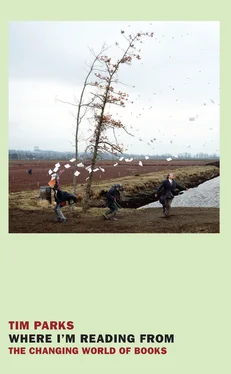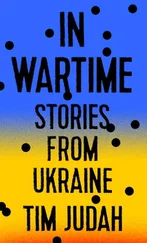Yet at the same time, neither readers nor writers are happy any longer with the idea that a literary text’s nation or language of origin should in any way define or limit the area in which it moves, or indeed that a national audience be the first and perhaps only arbiter of a book’s destiny. We feel far too linked up these days not to want to know which books are being read in which other countries right now. And if we are writers, of course, we want our own books to travel as widely as possible.
The obvious solution is translation. And indeed, there has never been so much translation as there is today, nor has it ever happened so soon after publication of the original, with groups of translators sweating over typescripts of blockbuster thrillers or even literary novels so that they can be published at the same time in many countries with a simultaneous and unified promotional campaign. Few people realize how many books are now translated by more than one translator (often this is not made clear in the credits), nor how fast translators are expected to work. It might be argued that the literary world is merely following the cinema with its international distribution circuits. But books are not films. While most films can survive subtitling or dubbing, the success of translation very largely depends on the levels of complexity in the original text. Above all there is a problem with a kind of writing that is, as it were, inward-turning, about the language itself, about what it means to live under the spell of this or that vernacular.
Of course one can translate Joyce’s Ulysses , but one loses the book’s reveling in its own linguistic medium, its tireless exploration of the possibilities of English. The same is true of a lot of the experimental writing of the 1960s and 1970s. It is desperately hard to translate the Flemish writer Hugo Claus into English, or indeed Thomas Pynchon’s Gravity’s Rainbow into anything. There was a mining of linguistic richness in that period, and a focus on the extent to which our culture is made up of words, that tended to exclude, or simply wasn’t concerned about, the question of having a text that can travel the world. Even practitioners of “traditional” realism such as John Updike or, in England and in a quite different way, Barbara Pym, were obsessively attentive to the exact form of words that was their culture. In many ways Pym is untranslatable into Italian, or rather translation so alters the tone of the work that it’s hard to think of it as by Pym at all.
It was when I was invited to review in the same article a new translation of Hugo Claus’s Wonder (1962) alongside Per Petterson’s Out Stealing Horses (2003) and Gerbrand Bakker’s The Twin (2006) that it occurred to me that over the forty years between Claus and the others an important change had occurred. These more recent novels had, yes, been translated, from Norwegian and Dutch into English, but it was nothing like the far more arduous task of translating Claus and many of his peers. Rather, it seemed that the contemporary writers had already performed a translation within their own languages; they had discovered a lingua franca within their own vernacular, a particular straightforwardness, an agreed order for saying things and perceiving and reporting experience, that made translation easier and more effective. One might call it a simplification, or one might call it an alignment in different languages to an agreed way of going about things.
Inevitably, there is an impoverishment. Neither of these authors have the mad fertility of Claus; but there is also a huge gain in communicability, particularly in translation where the rhythm of delivery and the immediacy of expression are free from any sense of obstacle. Is it possible, I asked myself, that there is now a skeleton lingua franca beneath the flesh of these vernaculars, and that it is basically an English skeleton?
Of course as soon as one has excited oneself with an idea, one finds confirmation of it everywhere. As I have observed, Peter Stamm very much fits this description, likewise the German Siegfried Lenz, and many other French and Italian authors. So strong is the flavor of English in the Italian of the bestselling thriller writer Giorgio Faletti that a number of readers suggested it was actually translated from an English original written by someone else. At my own university in Milan, we have a project called GLINT (Global Literature and Translation) of which one area involves studying the extent to which Italian syntax has shifted toward English models over the last fifty years. There is no shortage of evidence. Contemporary Italian more frequently puts the adjective before the noun, more frequently uses possessives for parts of the body, more frequently introduces a pronoun subject, and more frequently uses the present progressive, all changes that suggest an influence from English.
So that is the intuition. The idea is not so much the old polemic that English is simply dominant and dangerous; but rather that there is a spirit abroad, especially in the world of fiction, that is seeking maximum communicability and that has fastened onto the world’s present lingua franca as something that can be absorbed and built into other vernaculars so that they can continue to exist while becoming more easily translated into each other—or into English itself.
One may see this as a wise compromise between lingua franca and vernacular, or as a slow caving-in to rampant English. Certainly it’s hard not to regret the dazzling and very Italian density of an author like Carlo Emilio Gadda, whose work is still only inadequately translated. On the other hand it’s intriguing to see that in resistance to the general drift toward the international—a game of polarities if you like, where one trend is confirmed by the extent to which it provokes its opposite—there is also a flourishing of dialect poetry, texts comprehensible only by a very small community. (I cannot understand the poetry of my close colleague Edoardo Zuccato, who writes in the Milanese dialect.) But such poetry is almost always published with an Italian translation alongside it, suggesting the poet’s desire for intimacy and authenticity on the one hand and an eagerness, perhaps anxiety, to be widely understood on the other. Any eventual translations, of course, will be made from the Italian, not the dialect.
LEARNING TO SPEAK AMERICAN
IN 1993 I translated all 450 pages of Roberto Calasso’s The Marriage of Cadmus and Harmony without ever using the past participle of the verb get . The book was to be published simultaneously by Knopf in New York and Jonathan Cape in London; to save money, both editions were to be printed from the same galleys, so it would be important, I was told, to avoid any usages that might strike American readers as distractingly English or English readers as distractingly American. To my English ear gotten yells America and alters the whole feel of a sentence. I presumed it would be the same the other way round for Americans. Fortunately, given the high register of Calasso’s prose, get was not difficult to avoid.
Now, two decades later, I am obliged to sign up to gotten . Commissioned by an American publisher to write a book that explores the Italian national character through an account of thirty years’ commuting and traveling on the country’s rail network, I am looking at an edit that transforms my English prose into American. I had already sorted out the spelling, in fact had written the book with an American spell check, and didn’t expect that there would be much else to do. Wrong. Almost at once there was a note saying that throughout the three hundred pages my use of carriage for a passenger train car must be changed to coach . Since this is a book about trains and train travel there were ninety-eight such usages. There was also the problem that I had used the word coach to refer to a long-distance bus. Apparently the twenty-four-hour clock was not acceptable, so the 17:25 Regionale from Milan to Verona had to become the 5:25 PM Regionale. Where I, in a discussion of prices, had written “a further 50 cents” the American edit required “a further 50 euro cents,” as if otherwise an American reader might imagine Italians were dealing in nickels and dimes.
Читать дальше












